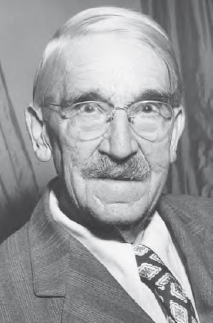American PhilosophyJohn Dewey |
What are some key facts about John Dewey’s life and career? |
Dewey was born in 1859 in Burlington, Vermont, where his father was a grocer. He attended the University of Vermont and then taught classics, science, and algebra at a high school in Oil City, Pennsylvania, and then in Burlington, Vermont. Unsure of his future direction, but encouraged by former teachers, he applied to the new graduate program in philosophy at Johns Hopkins University but was turned down for a fellowship twice. Dewey finally borrowed $500 from an aunt to attend. He thereby became part of the first generation able to obtain Ph.D.s in philosophy in the United States. Dewey’s teachers at Johns Hopkins were philosophers George Sylvester Morris (1840–1889) and Charles Sanders Peirce (1839–1914), and psychologist G. Stanley Hall (1844–1924).
At first, Dewey was very interested in Hegelian ideas of organism, that the living being interacts with its environment, and that society is an organic whole that can be viewed as an organism. After writing a dissertation on Immanuel Kant (1724–1804), he taught at the University of Michigan from 1884 to 1894. At this time he became interested in public education and progressive politics, as well as psychology. In 1894 Dewey became chair of the department of philosophy, psychology, and education at the University of Chicago. At Chicago, working with colleagues, he began to develop activist social theories. This resulted in the 1903 Studies in Logical Theory, which was dedicated to William James (1842–1910).
Dewey had a national reputation when he left Chicago for Columbia University. The Journal of Philosophy, published by the Columbia Philosophy Department, became an outlet for his ideas and a forum for discussion of them over the decades. Dewey lectured in Tokyo, Peking, and Nanking, and studied education in Turkey, Mexico, and Russia.
In retirement, Dewey chaired the 1937 Mexican commission investigating charges against Russian revolutionary Leon Trotsky, which produced a report, Not Guilty. He also defended Bertrand Russell in 1941, when Russell was denied a teaching opportunity at City College, New York, because of his political ideas.

